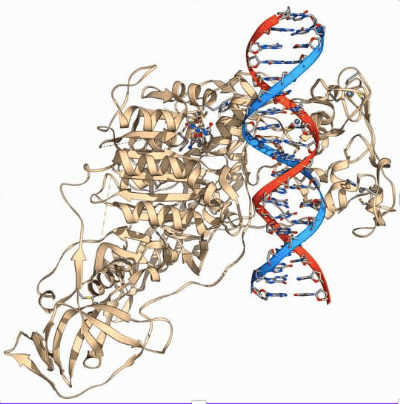Epigenetics saves lives, if you let it. Epigenetics is the study of how your behaviors and environment can cause changes that affect the way genes work. Unlike genetic changes, epigenetic changes are reversible and do not change your DNA sequence, but they can change how your body reads a DNA sequence. This is great news because there is a lot we can do to optimize health. Read on!
According to the Morris Animal Foundation, "Epigenetics affect how, when and whether genes are read by cells. By altering the physical structure of a DNA strand, for instance, genes can be turned on (expressed) or off (ignored by the cell). This means that the food they eat, the water they drink, the vaccines and medication they are given, opportunities to exercise and exposure to toxins can either create health or destroy it.
So, if you feed your dog a nutrient dense/protein-rich/species appropriate diet and do not feed kibble, vaccinate and medicate carefully, let them run around often and give your dog access to fresh air regularly you can literally turn on genes for optimal health. However, if you feed kibble, vaccinate and medicate often, limit exercise and mobility and use a bunch of toxic chemicals in your home, you turn on genes for sickness. So, epigenetics will save lives if you let it.
Unfortunately, because the English Bulldog breed has been so highly vaccinated, over-medicated and malnourished and bred from a very limited gene pool, the breed is notorious for disease. According to the UK's Royal Veterinary College (RVC), English Bulldogs have a "high rate of health issues related to extreme body shape" and "exaggerated features" (source: Quad City Times), which is why some vets are urging people not to buy bulldogs.
Sadly, the "RVC's VetCompass program compared the health of random samples of 2,662 English bulldogs and 22,039 dogs of other breeds. It found the bulldogs were more than twice as likely to have one or more disorders in a single year than other breeds (source: Quad City Times)."
This can be attributed to a number of factors. First, bulldogs are undoubtedly predisposed to certain health issues because the gene pool is tiny. Teeny tiny.
With limited genetic diversity in the line, genetic disease and problems are passed over and over again from parent to puppy. In fact, according to a recent study published in the journal, Canine Genetics and Epidemiology, researchers found that 93% of the 103 (bull)dogs they studied came from one paternal line." And because of this limited genetic diversity, this study also suggests that improving the overall health of English bulldogs may be impossible. Again, epigenetics will save lives, if you let it.
Even though this is a limited sample, I do think it is indicative of what is happening with the entire breed. Most bulldogs can be traced back to the same grandparents or great grandparents, which creates this limited gene pool. That coupled with the fact that the entire genetic line has been over-medicated, over-vaccinated AND largely fed a crappy diet that lacks the ideal nutrients for health AND typically puppies are born via c-section without ever receiving healthy bacteria from their mothers' birth canal, which negatively impacts their gut health right from the start.
Let's stop and think about this for a moment. We know the breed has certain sensitivities, yet virtually nothing is done to tailor care to the individualized need of the dog. For example, why does a yorkie get the same vaccine dosage as a New Foundland? Also, we know kibble literally causes cancer, "bulldog" specific kibble is the gold standard and is manufactured by MARs INC, a sugar company, that could care less about your dog.
Further, you cannot give a dog a rabies vaccine every single year (after the entire genetic line has been vaccinated yearly for years and years), pump them up with adjuvants contained in the vaccine and other symptom-disguising drugs approved by the FDA, and then breed the and expect him to be healthy, vital and create amazing puppies. This kind of approach is anti-science and quite simply doesn't make any logical sense.
Epigenetics will save your bulldog's life if you allow it. Making decisions based on understanding epigenetics will save the breed, even with the limited genetic diversity. I think we can clean up the genetic line by making decisions around epigenetics. We can improve the genetic material that we have to work with by vaccinating carefully and not just because some antiquated guideline say so, we can feed an ancestrally appropriate diet which is raw food (next best thing is home-cooked and does not include kibble), medicate only in life-threatening situations and limit exposure to environmental toxins, and provide regular access to the outdoors, sunlight and exercise, we can turn off certain genes that create sickness and turn on genes that optimize health. Epigenetics will save lives, if you let it.
Donate to Bobzilla.org

$5.00
The veterinary business is business which is not in the business of curing your animal, but Bobzilla's business is. Bobzilla is committed to one hundred percent transparency in all of its scientific research into animal wellness and prevention of disease and one… read more




